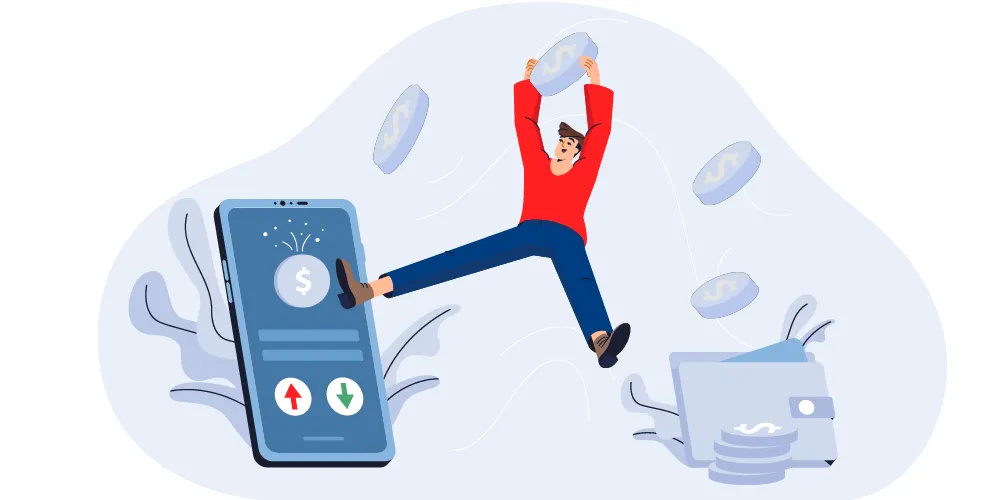What’s the difference between SPIFF and Sales Commission?
- Sumeet Shah
- May 11, 2023
- 4 min read
- Last updated on Jun 04, 2024
As a business owner, you understand the value of sales performance and want to maintain a full sales pipeline. Sales performance incentive funds, or SPIFFs, and sales commissions can be very successful strategies for motivating sales performance while serving different objectives.
These strategies have benefits, drawbacks, and several elements that need to be considered while creating and implementing them, as they all need to align with your organization's conditions, needs, and desired outcomes.
This piece will cover the distinctions between SPIFFs and sales commissions, their advantages and disadvantages, in further detail.
What distinguishes SPIFF from sales commission?
Even though sales commissions and SPIFFs are all incentives you use to award your sales reps based on their performance, there are important distinctions between the two, and each sales incentive program has a unique goal. Let's take a closer look at SPIFFs and sales commissions to comprehend these distinctions better.
Sales Commission
A sales rep's overall salary may include a sales commission as an incentive to encourage them and raise performance. Reps typically receive a base salary and a variable pay element through sales commissions. For instance, a sales representative might receive a base salary of $6000 per month and a commission of 10% of all sales made during the month.
Remember that there are many more implementations of sales commission-based pay arrangements; this is only one simple example. For instance, paying reps simply a commission and not a base wage is one of these. Others include variable commissions, where the commission rate varies depending on quotas, draws against the commission, and more.
The time frame used to create quotas and assess reps' performance against these quotas can also be changed. For instance, you may set quotas monthly, quarterly, or annually. The compensation structure you select will ultimately depend on your business's particular demands and requirements, the items you sell, your sales cycles, and the objectives you wish to achieve.
SPIFF
SPIFF stands for the Sales Performance Incentive Fund, among other things.
In contrast to sales commissions, SPIFF programs are temporary sales incentives you provide to your reps when they meet certain predetermined targets or goals. These SPIFFs often come in the form of prepaid cards that your representatives can use to make purchases offline, online, or via ATMs. They can also take the shape of many rewards, such as gifts, trips, days off, etc.
SPIFF programs are typically used to accomplish short-term objectives. This might range from improving a product's sales to growing revenue over time to boosting sales during product debuts.
Sales Commission: Positives and Negatives
The fundamental distinctions between sales commissions and SPIFFs have now been demonstrated. The benefits and drawbacks of these two ideas have further variations between them. Starting with the advantages and disadvantages of sales commission, let's think about these in greater detail.
The following are some benefits of sales commissions:
Stimulates Performance
Performance is encouraged by sales commissions. To put it another way, you will pay your reps according to their performance. Therefore, you won't overpay sales representatives who don't generate any revenue and will only compensate those who perform successfully.
Improves motivation and performance
Your reps will work harder when you implement a sales commission-based compensation plan because they will be motivated by the potential earnings they will receive for exceeding their quotas. As a result, you'll inspire workers and boost their output, directly affecting your bottom line.
Improves employee morale
You'll raise the general morale of your sales teams when your sales reps know what they can earn and that their work is valued. This thus has a big effect on their motivation and performance.
Access to talent
The top salespeople in your company can be kept on staff if you adopt a sales pay plan with a competitive incentive structure. You'll also be able to draw in salespeople who know they have the knowledge and experience necessary to succeed in their careers and make a nice living when they reach their quotas. In the end, you have access to top talent, and the attrition of employees is decreased.
Simplifies management expenses:
Using a commission-based compensation structure, you only pay your reps when they generate sales and achieve their goals. You'll also cut back on the costs of the salespeople who don't perform well. Sales commission consequently makes it simpler for you to control your payroll costs.
Unfortunately, there are numerous drawbacks to sales commission, including:
Declining performance and morale
Although receiving a sales commission can boost morale and productivity, the opposite is also true. Usually, this happens when your reps' quotas are too high, and they cannot meet them. You won't sell as much as you hope to since they will lose motivation or discount their quotas in this situation.
Promoting wrong behavior
Your sales commission plan may encourage the wrong behaviors if it isn't well-developed. For instance, it can cause your salespeople to employ pushy sales tactics that harm the customer experience and might result in a loss of income or even lose the customer for good.
Unhealthy competition
Although competition might help your sales reps be more motivated and perform better, unhealthily competitive environments can have the opposite impact. As a result, it could create a toxic workplace that lowers motivation and productivity. Fortunately, this can be minimized with a thoughtful compensation strategy.
No security
Sales representatives would feel less secure under commission-based remuneration arrangements than a fixed salary. You may allay their worries by employing the appropriate fixed-to-variable compensation ratio, which lowers the level of risk associated with employment.
Difficult to manage
For small sales teams, managing the sales commission can be rather simple. It becomes much more difficult as the number of reps and commission arrangements rises. As a result, managing compensation plans that include sales commissions can be difficult, especially in the absence of a sales compensation management tool.
SPIFF's Benefits and Drawbacks:
Similar to sales commissions, SPIFFs have several benefits and drawbacks. Here are a few advantages:
Acquiring fresh clients
Your sales staff can successfully bring in new clients or prospects since a SPIFF program can assist them in focusing on short-term objectives. A SPIFF, for instance, can help you if you wish to launch a new product in a new market. However, while SPIFFs might be useful, your sales plan should be built on something other than them.
Attaining short-term sales objectives
SPIFFs are a very successful tactic when trying to meet short-term sales goals. These can range from boosting the success of introducing a new product to meeting short-term revenue goals.
Enhancing employee engagement
Employee involvement enhances the productivity, drive, and morale of sales reps. Reps will simply perform better when they are more motivated. Despite this, many companies need help maintaining employee engagement. SPIFFs can increase sales rep engagement by providing short-term rewards, which helps them reach their quotas.
Offering incentives quickly
SPIFFs enable reps to be paid out more quickly because they give short-term rewards and aren't a regular part of your reps' compensation. As a result, they don't have to wait until the end of the month or the end of the quarter to find out if they've fulfilled their quotas and whether they'll get paid. As a result, this can maintain their motivation and spirit.
The following are a few drawbacks of SPIFFs:
Possibility of dishonesty
One of SPIFFs' key drawbacks is that they might encourage dishonest behavior among sales representatives. For instance, salespeople may hold back on sales if they are aware of an impending SPIFF to increase their earnings during that time. They might market the incorrect products to the incorrect customers to increase sales, which is another issue. Customer dissatisfaction could consequently decline, which could finally result in a loss of income.
Implementation is difficult
Because SPIFFs are geared towards quick results, it may be difficult to design and implement them effectively. If they are not implemented effectively, it may result in certain reps not qualifying, incorrect SPIFF awards, or insufficient cash to pay out rewards to reps when they are due. Loss of motivation and morale follow from this.
Could be expensive
SPIFFs should only be used in limited circumstances to increase short-term sales or accomplish other objectives. If you don't, it may get expensive, and you might utilize them too frequently, reducing the amount of incentive and engagement they can produce.
Unhealthy competition
Competition can spur sales representatives to improve, as was already indicated. Unhealthy competition, however, can produce a negative work atmosphere that lowers morale, motivation, and output. Usually, this occurs when your SPIFF prefers some reps over others or when there can be only one winner.
Considerations for adopting Sales Commissions and SPIFFs
When using sales commissions and SPIFFs, ensure they are appropriately created and implemented for the best outcomes. There are several things you'll need to think about to guarantee that they are.
Goals
Your goals are one of the most crucial factors to consider when adopting sales commissions or SPIFFs. Therefore, you must decide what you want to accomplish because this will serve as the foundation for your strategy and execution. Additionally, if you have clear objectives, your execution will be smooth, and the results will be good.
Your objectives may also influence the approach you should take. For instance, SPIFFs are concerned primarily with short-term gains, as was already established. So, if you have short-term objectives that you want to accomplish, SPIFFs will be the best strategy.
Likewise, sales commission is the best instrument if your goal is long-term, sustainable growth. But remember that you can combine the two approaches to get successful sales.
Budget
The second factor to consider is whether you have the financial resources to put one of these ideas into action. This is simply because putting these techniques into place may be expensive, and bad budget planning may prevent your reps from receiving the incentives they are due, which will make them unhappy, lower their morale, and make them perform poorly.
Your budget should be large enough to compensate all your reps if they fulfil their quotas or objectives when planning sales commissions or SPIFFs. In other words, you should be okay with the fact that all of your reps will get the entire incentive or reward.
Transparency
Being entirely transparent is a critical factor to keep in mind while implementing SPIFFs or sales incentives. This implies that your sales representatives need to be well aware of the incentive's mechanics as well as the requirements and potential rewards.
This openness removes any ambiguity and guarantees that each and every one of your reps knows exactly what is expected of them. Additionally, as was already indicated, their motivation and performance will increase if they know exactly how much they will be paid.
Conclusion:
You are aware of how SPIFF is utilized differently than commissions. The key is to employ SPIFFs and commissions effectively because they are both effective under their respective conditions. When it comes to rewarding your sales representatives, commissions are your long-term plan. SPIFFs, on the other hand, are short-term strategies you might employ to increase sales.
Incentivate can help you if you need assistance with commission calculations and performance monitoring for your sales representatives.





